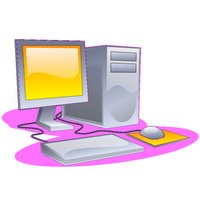 Although e-mail may be an efficient clinician-patient communication tool, standard e-mail is not adequately secure to meet Health Insurance Portability and Accountability Act (HIPAA) guidelines. For this reason, firewall-secured electronic messaging systems have been developed for use in health care.
Although e-mail may be an efficient clinician-patient communication tool, standard e-mail is not adequately secure to meet Health Insurance Portability and Accountability Act (HIPAA) guidelines. For this reason, firewall-secured electronic messaging systems have been developed for use in health care.The Kryptiq messaging system was implemented at an academic center and messages were monitored continuously and tracked.
In the 8 months after implementation, only 5 messages were initiated by patients in contrast to 2,363 phone calls.
Patients/families expressed strong interest in e-mailing but secure Web messaging was:
- less convenient than using the phone
- too technically cumbersome
- lacked a personal touch
- only by a handful of patients
One pediatrician on Twitter wants a simpler solution:
@Doctor_V (Bryan Vartabedian): Gimme an integrated, secure Tw like tool for doc to doc/pt comm - part of record.
Comments from Twitter:
@davisliumd: No, Kaiser's data different: Use of Health Information Technology Leads to Improved Care Quality
@yejnes: My patients like it!
References:
Secure Web Messaging in a Pediatric Chronic Care Clinic: A Slow Takeoff of "Kids' Airmail". PEDIATRICS Vol. 127 No. 2 February 2011, pp. e406-e413 (doi:10.1542/peds.2010-1086)
Medical practices using email with patients see their voicemail volume drop - email replaces inefficient phone tag. "We in health care can no longer sit back and say, "I don't do email with patients" - a doctor in WSJ, 2012.
Image source: Wikipedia, public domain.